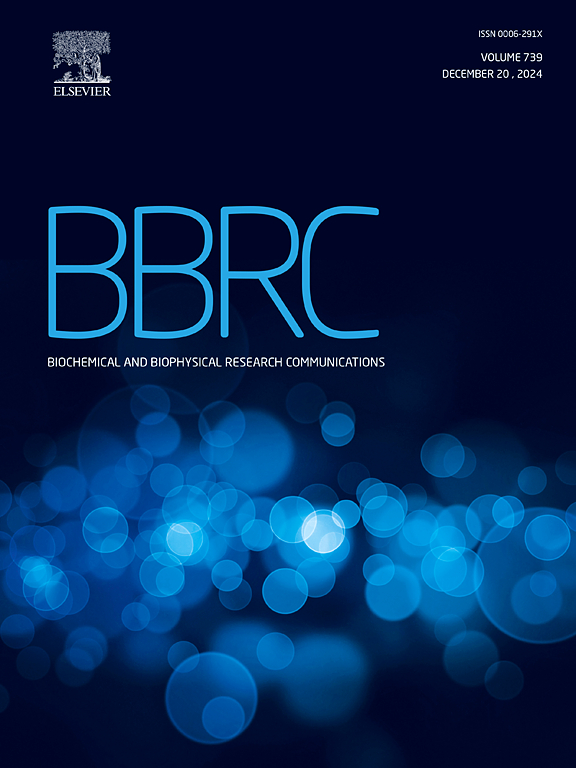用一种新的CD89双特异性抗体靶向ALPPL2,重新编程巨噬细胞以增强抗肿瘤免疫
IF 2.5
3区 生物学
Q3 BIOCHEMISTRY & MOLECULAR BIOLOGY
Biochemical and biophysical research communications
Pub Date : 2025-04-07
DOI:10.1016/j.bbrc.2025.151761
引用次数: 0
摘要
免疫疗法有望治疗癌症,但其在实体肿瘤中的疗效往往受到免疫抑制肿瘤微环境(TME)的限制。巨噬细胞,丰富的TME,可以重新编程,引发抗肿瘤免疫。我们开发了一种新的双特异性抗体ALPPL2-CD89,可以特异性靶向和激活肿瘤内的巨噬细胞。ALPPL2-CD89双特异性抗体对这两个靶点均显示出高结合亲和力,并显著增强了巨噬细胞介导的肿瘤细胞吞噬。人CD89转基因小鼠携带表达alppl2的肿瘤的体内研究显示,肿瘤生长受到显著抑制。肿瘤微环境分析显示,ALPPL2-CD89治疗增加了CD3+和CD8+ T细胞浸润,并将肿瘤相关巨噬细胞转向促炎M1表型。我们的研究结果表明,ALPPL2-CD89是一种有希望的治疗候选药物,它可以有效地重新编程髓系细胞室,从而驱动针对alppl2阳性恶性肿瘤的有效抗肿瘤免疫。本文章由计算机程序翻译,如有差异,请以英文原文为准。
Targeting ALPPL2 with a novel CD89 bispecific antibody reprograms macrophages to enhance anti-tumor immunity
Immunotherapy holds promise for cancer treatment, but its efficacy in solid tumors is often limited by the immunosuppressive tumor microenvironment (TME). Macrophages, abundant within the TME, can be reprogrammed to elicit anti-tumor immunity. We developed a novel bispecific antibody, ALPPL2-CD89, to specifically target and activate macrophages within the tumor. The ALPPL2-CD89 bispecific antibody demonstrated high binding affinity to both targets and significantly enhanced macrophage-mediated phagocytosis of tumor cells. In vivo studies using human CD89 transgenic mice bearing ALPPL2-expressing tumors showed significant tumor growth inhibition. Analysis of the tumor microenvironment revealed that ALPPL2-CD89 treatment increased CD3+ and CD8+ T cell infiltration, and shifted tumor-associated macrophages toward a pro-inflammatory M1 phenotype. Our findings establish ALPPL2-CD89 as a promising therapeutic candidate that effectively reprograms the myeloid compartment to drive potent anti-tumor immunity against ALPPL2-positive malignancies.
求助全文
通过发布文献求助,成功后即可免费获取论文全文。
去求助
来源期刊
CiteScore
6.10
自引率
0.00%
发文量
1400
审稿时长
14 days
期刊介绍:
Biochemical and Biophysical Research Communications is the premier international journal devoted to the very rapid dissemination of timely and significant experimental results in diverse fields of biological research. The development of the "Breakthroughs and Views" section brings the minireview format to the journal, and issues often contain collections of special interest manuscripts. BBRC is published weekly (52 issues/year).Research Areas now include: Biochemistry; biophysics; cell biology; developmental biology; immunology
; molecular biology; neurobiology; plant biology and proteomics

 求助内容:
求助内容: 应助结果提醒方式:
应助结果提醒方式:


